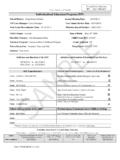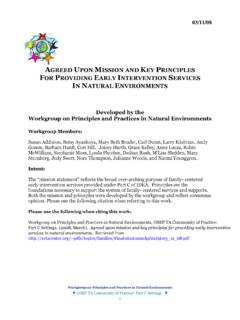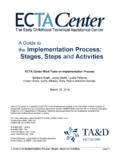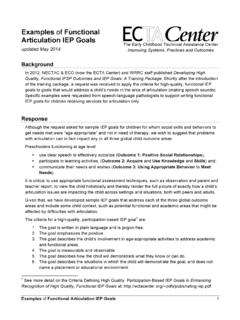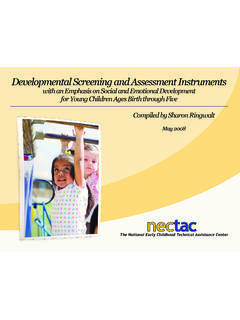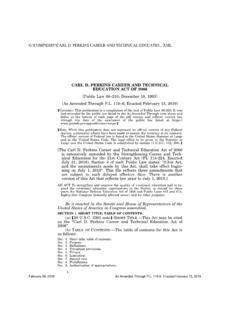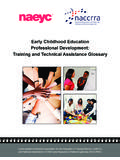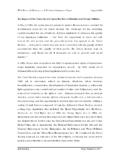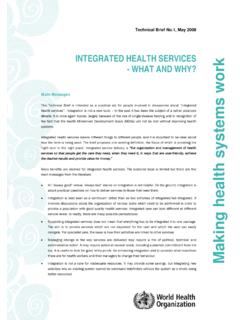Transcription of Guiding Principles for Effective Technical Assistance
1 At the Frank Porter Graham Child Development Institute Guiding Principles for Effective Technical Assistance June 2014. Technical Assistance can be described as a collaborative and coordinated approach to facilitating change, building the capacity of both organizations and individuals, developing improved ways of doing things, and ultimately, achieving agreed-upon outcomes (1, 2-3). Some essential Guiding Principles of Effective TA include: Offer Multiple TA Strategies and Levels of Support TA providers need to offer a broad range of TA approaches and levels of intensity in order to effectively respond to the diverse and unique needs of their clients (4).
2 When determining the appropriate type and level of support to provide, it is essential to assess the strengths and needs of the client, the desired outcomes, the context, available resources, and any existing time constraints. Utilize Effective Adult Learning Strategies Mastery of new skills and practices requires not only access to high quality information, but also active participation in the learning process, multiple and varied opportunities to apply what has been learned, coaching/mentoring over time, regular self-assessment activities, evaluation of how effectively new knowledge is being used, and ongoing feedback in a supportive environment (5, 6-8).
3 Guiding Principles for Effective Technical Assistance (June 2014) 1. Develop Trusting Personal Relationships To be Effective , all levels of TA require stable and trusting relationships. Clients must have confidence that their TA providers understand the context of their work; have the expertise needed to address their needs; will be reliable, timely and thoughtful in their responses;. and will provide resources that are high quality, evidence-based, current and relevant to their needs (9-10). Clients must also feel respected and trust that their privacy will be protected.
4 Work Collaboratively and Build on Existing Strengths TA providers and clients must work together to clearly articulate and come to a joint understanding of what is currently working, what needs to change, the vision for change, and the feasibly of implementing specific change strategies (1, 11-12). Effective improvement initiatives must support work that is already being done, build on existing strengths, and help clients to better leverage and integrate current resources and efforts (13). As Fixsen, et al. have stated (14), Change should supplement what already works, not supplant efforts that are valued, working for some, and hard won.
5 Develop Partnerships and Integrate Resources Developing partnerships, integrating and leveraging resources, reducing duplication of effort, and sharing expertise are critical to the work of effectively and efficiently implementing sustainable improvement initiatives (13). Provide Adaptive Leadership and Build Consensus TA providers need to be skilled at promoting meaningful participation among a variety of stakeholders who often have diverse perspectives and varying levels of agreement about the innovation being proposed (11, 15-16). They must be able to create conditions in which Guiding Principles for Effective Technical Assistance (June 2014) 2.
6 People with very different backgrounds and experiences are able to work together effectively and build consensus around complex issues (17). Communicate Openly and Often Both TA providers and clients must have reliable and consistent ways to provide input, clarify ambiguities, and quickly identify and address problems that come up. Maintaining open lines of communication can also help develop readiness for change in individuals who may need more information to fully embrace the innovation that is being introduced (14, 18).. Gather Meaningful Process and Outcomes Data at Regular Intervals Effective TA should be based on a logic model that incorporates both formative and summative evaluation activities into all aspects of its work.
7 It is critical to gather regular feedback on what is working, what is not working, and where adjustments need to be made in order to ensure that intended outcomes are being achieved (5, 8, 12, 13, 18, 19, 20-21). Evaluation data is critical for improving the effectiveness of the TA being provided and determining its impacts on state systems, practices, and desired results. View TA through a Systems Change Lens State service systems are complex, multi-leveled and highly interactive. A change introduced at one level of the system inevitably impacts other levels and is likely to be forced back to the status quo if not accompanied by purposeful, planned support at all related levels (2,8, 11-12, , 13, 18, 21, 22).
8 Incorporate Implementation Science Findings into All Levels of TA. The implementation science literature describes the stages, drivers, feedback loops, and expert supports that are needed to select appropriate evidence-based practices (EBPs). and to implement, scale-up and sustain these practices with fidelity (5, 11-12, , 13 18, 19, 22). TA. Guiding Principles for Effective Technical Assistance (June 2014) 3. providers must support clients in their efforts to access, understand, select, and use evidence-based practices (EBPs); they must help their clients develop and strengthen the infrastructure needed to support the implementation and scale up of EBPs in ways that are sustainable over time; and they must build their clients' capacity to incorporate implementation science findings into all aspects of their program improvement planning and change efforts.
9 2014 Trohanis Technical Assistance Projects Please cite as: Trohanis TA Projects at the Frank Porter Graham Child Development Institute. (2014, June). Guiding Principles for Effective Technical Assistance . Retrieved from: ~pdfs/ References 1. Fixsen, D., Blase, K., Horner, R., & Sugai, G. (2009). Intensive Technical Assistance . Retrieved from 2. Beale, B., & Luster, J. N. (2009). A framework for collaborative partnership in providing intensive Technical Assistance . Southeast Regional Resource Center and Data Accountability Center. 3. Trohanis, P. L.
10 (Ed.). (1982). Strategies for change. Chapel Hill: University of North Carolina at Chapel Hill, Frank Porter Graham Child Development Center, Technical Assistance Development System. 4. Department of Education, Office of Special Education Programs (2012). Conceptual model for OSEP TA content centers. Retrieved from 5. Fixsen, D., Naoom, S., Blase, K., Friedman, R. & Wallace, F. (2005). Implementation research: A synthesis of the literature. Retrieved May 3, 2008, from Guiding Principles for Effective Technical Assistance (June 2014) 4. 6. Trivette, C.

